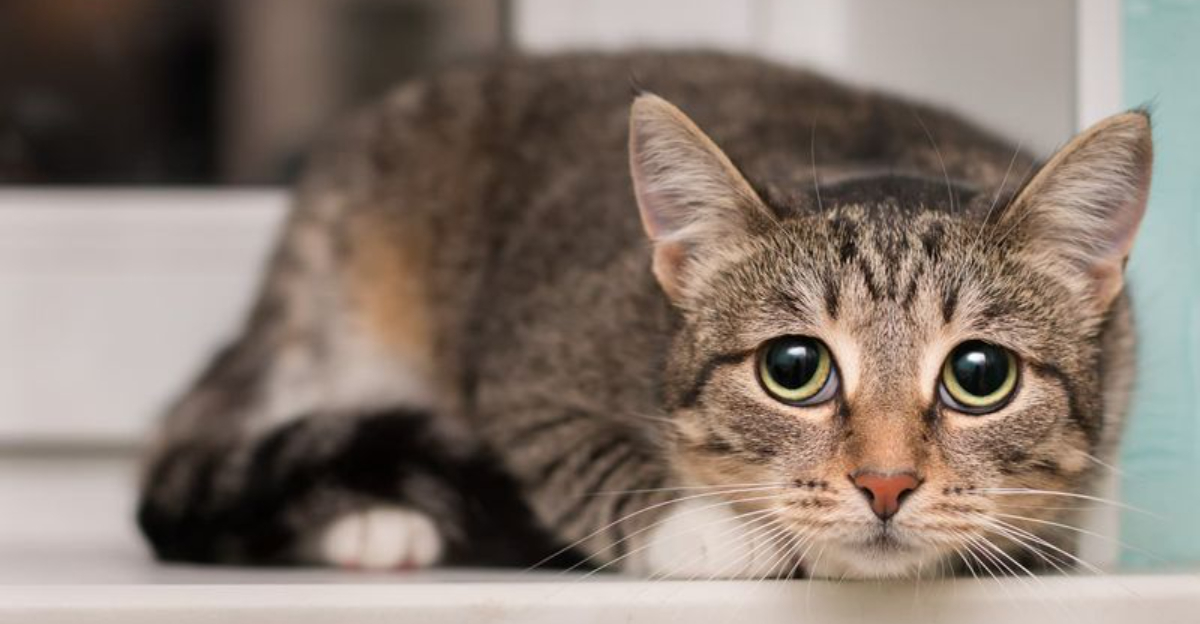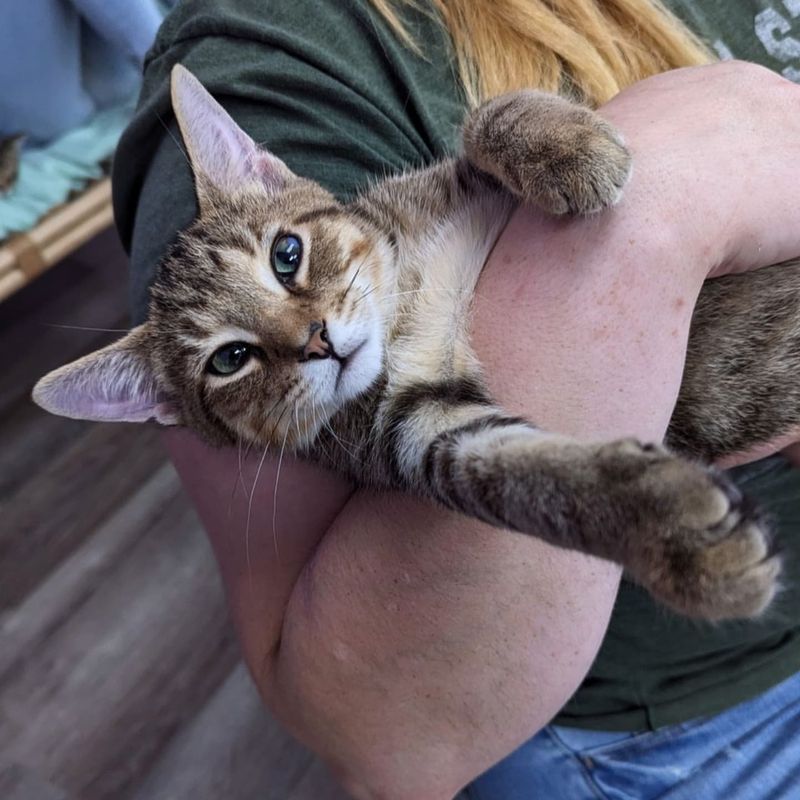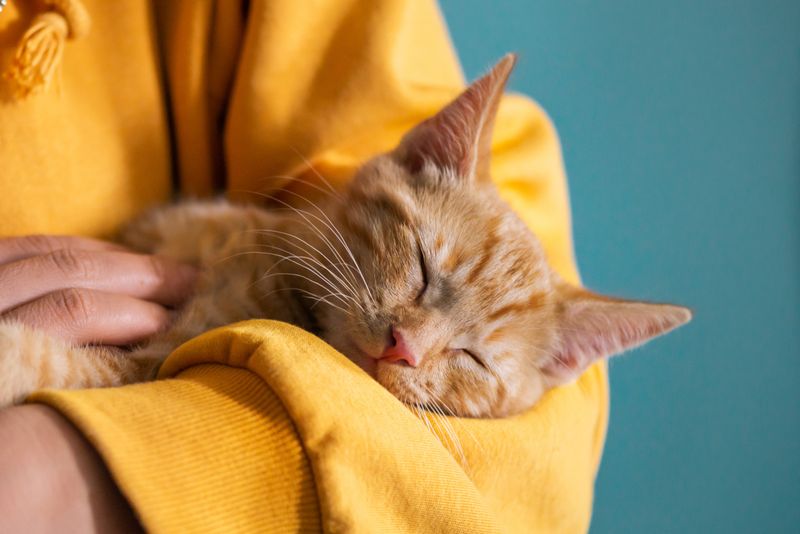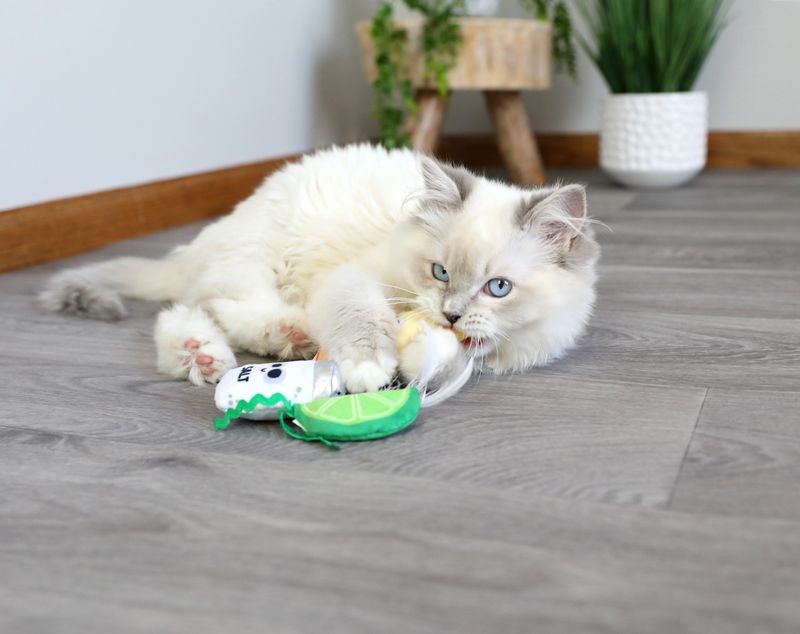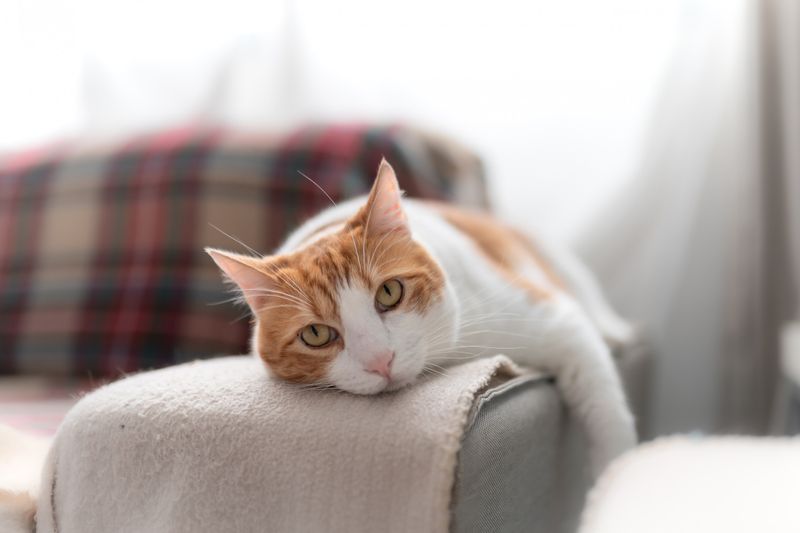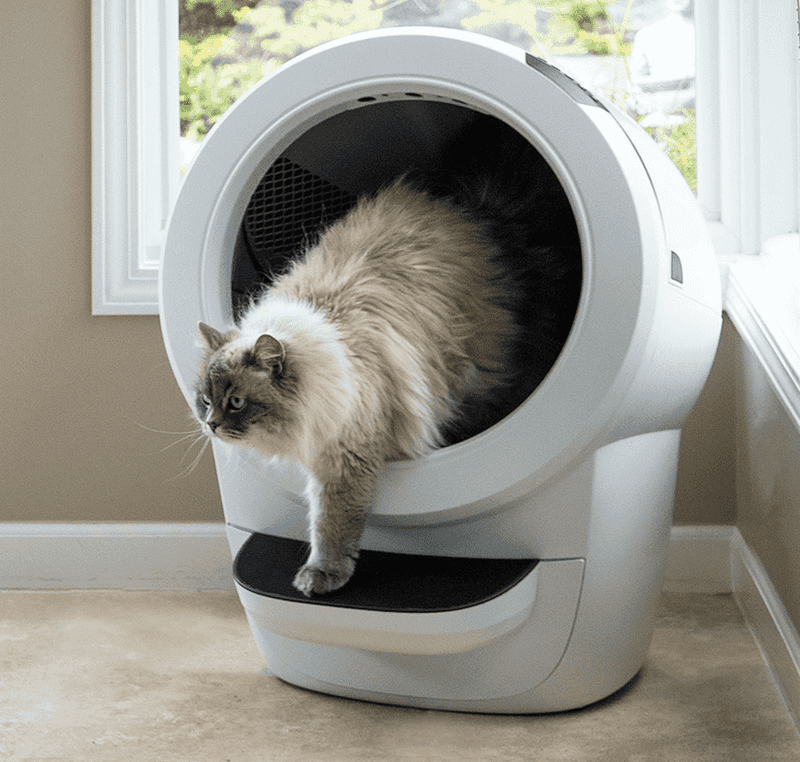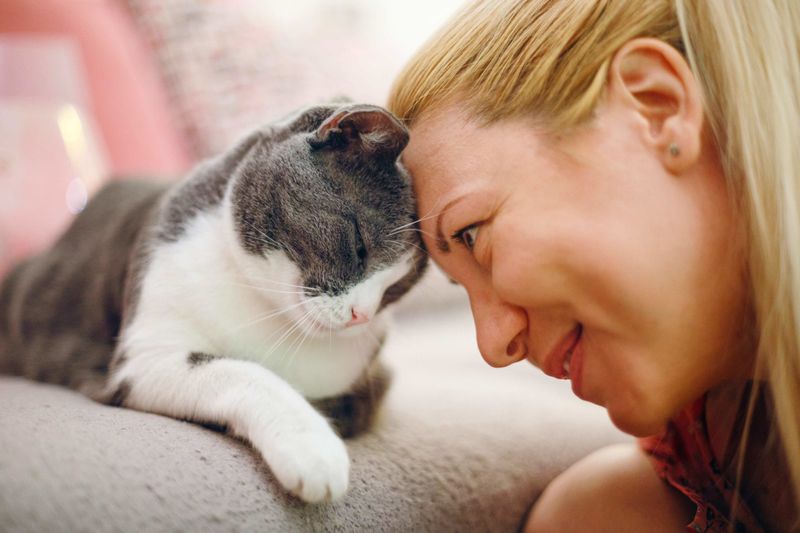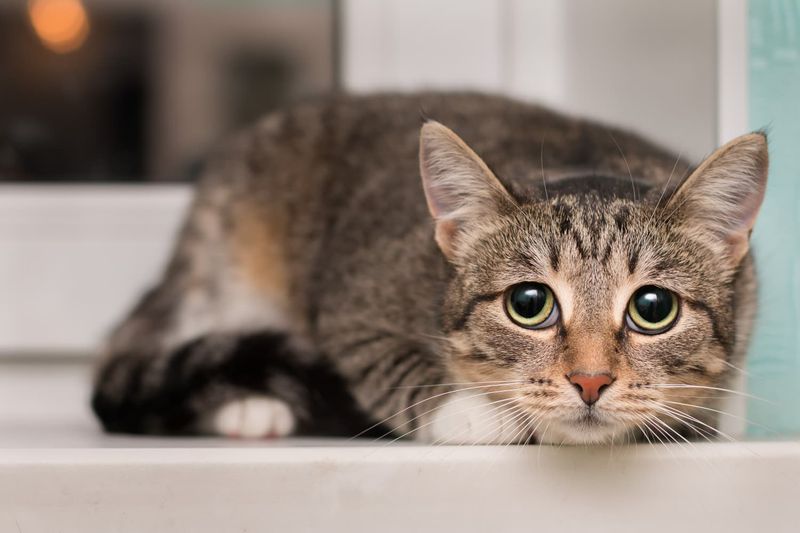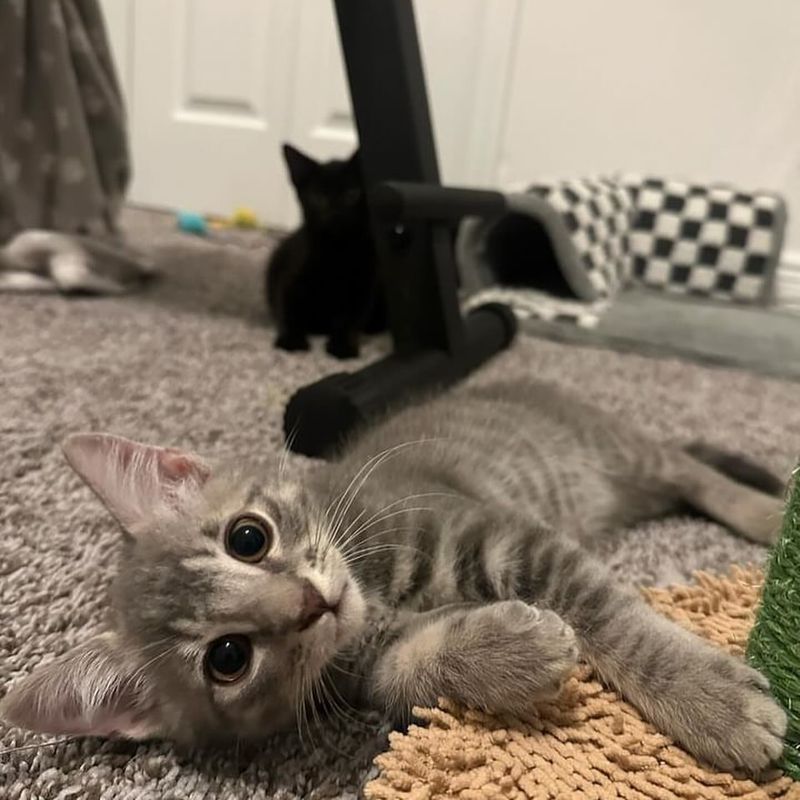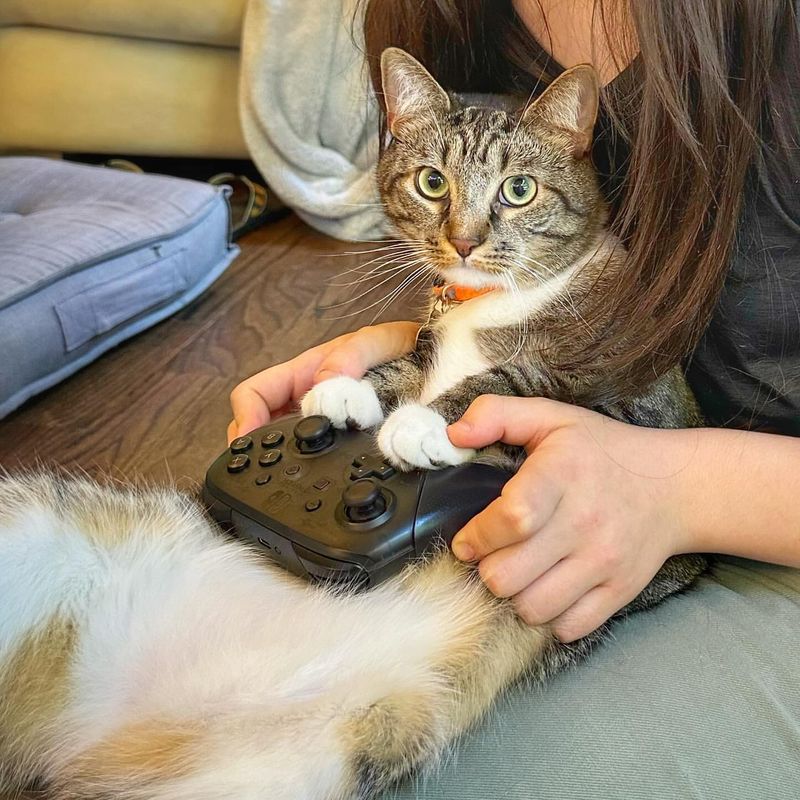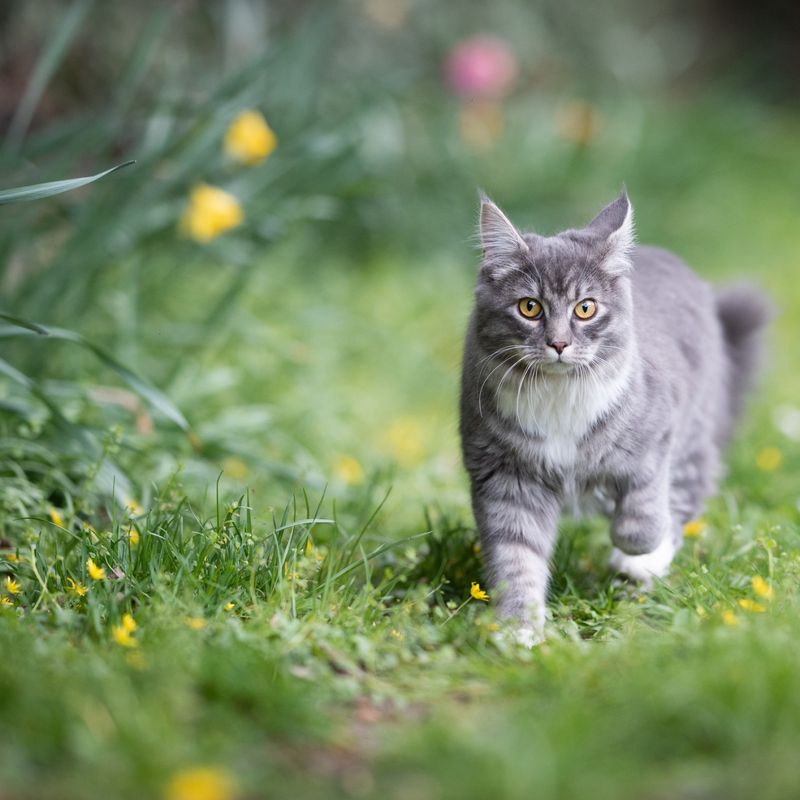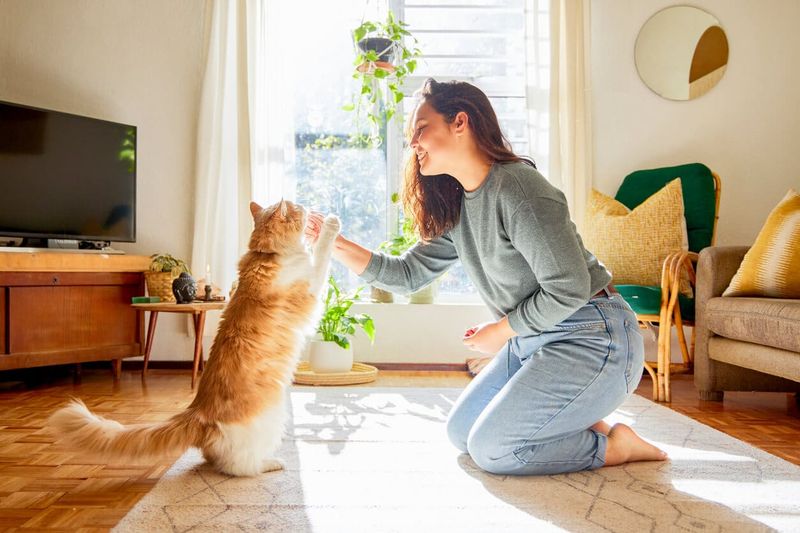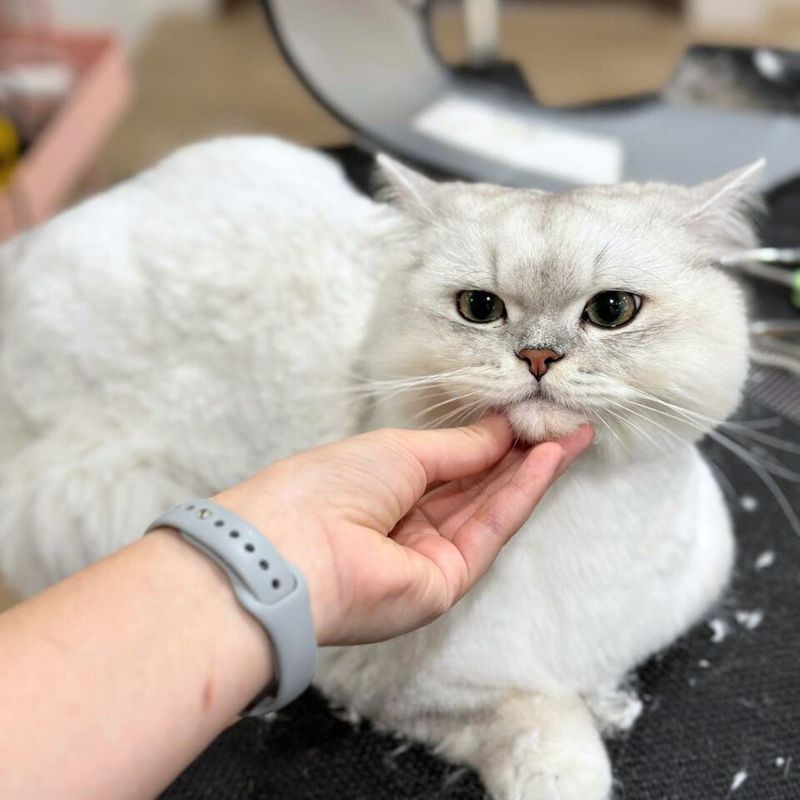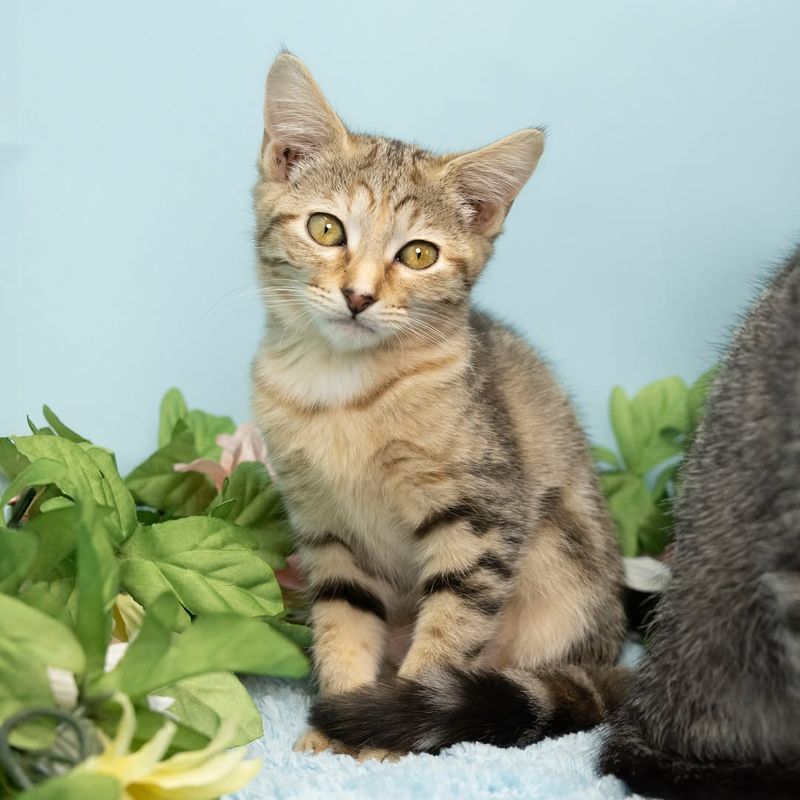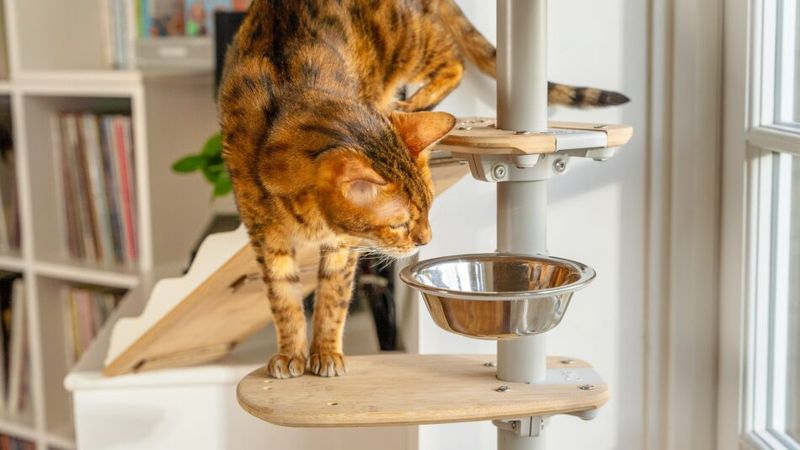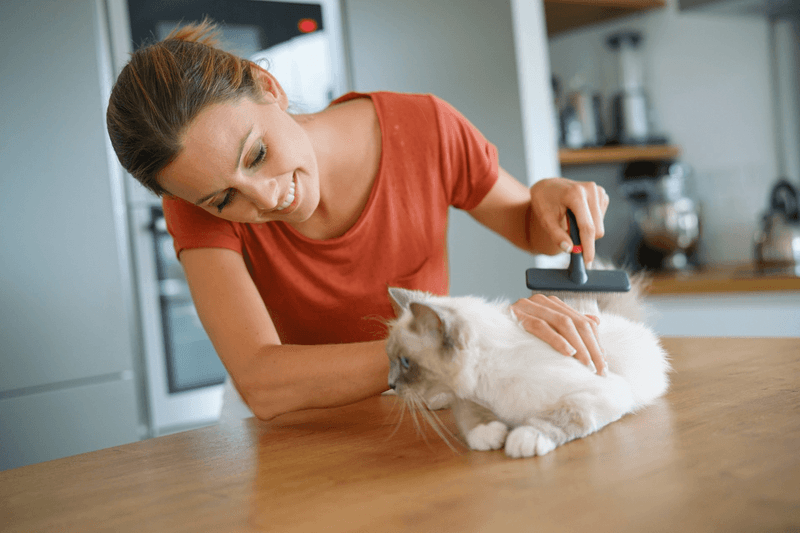📖 Table of Content:
- 1. Socialization from a Young Age
- 2. Positive Reinforcement Training
- 3. Consistent Mealtime Etiquette
- 4. Gentle Play and Interaction
- 5. Respecting Personal Space
- 6. Proper Litter Box Training
- 7. Encouraging Calmness and Patience
- 8. Understanding Body Language
- 9. Handling Changes Gracefully
- 10. Building Trust Through Routine
- 11. Encouraging Exploration Safely
- 12. Listening and Responding to Cues
- 13. Encouraging Gentle Grooming
- 14. Creating a Peaceful Environment
- 15. Reinforcing Boundaries with Love
- 16. Provide Comfortable Spaces
- 17. Groom Your Cat Regularly
Raising a well-mannered cat requires a deep understanding of feline behavior and the right approach to shaping it. By focusing on positive reinforcement and consistency, it’s possible to nurture a cat that behaves courteously in every situation. With a few simple yet effective techniques, a cat can learn to coexist peacefully with both humans and other pets.
A well-behaved cat is not only easier to live with, but also more enjoyable to interact with on a daily basis. Encouraging polite behavior starts with clear expectations and a calm, patient approach. These 15 tips are designed to guide owners through the process of creating an environment where good manners are the norm.
With time and dedication, these methods can transform a cat into a delightful, well-adjusted companion. From basic training to socialization techniques, each tip offers a straightforward solution for building a better relationship with your feline friend. The end result is a harmonious household where both humans and pets thrive.
1. Socialization from a Young Age
To prevent shyness, socializing your cat from a young age is crucial. Let them meet different environments and people while starting with short, positive interactions. Gradually increase exposure to help them grow in confidence and adaptability.
By engaging with different surroundings, your cat learns to be comfortable around new experiences. Encourage gentle handling by family members and friends to build trust.
A well-socialized cat is less likely to exhibit aggressive or fearful behavior. This lays the foundation for a polite and well-mannered feline who thrives in diverse settings.
2. Positive Reinforcement Training
Rewarding your cat’s good behavior with positive reinforcement makes training more effective. Use treats, affection, or playtime to strengthen desirable actions.
Cats respond well to positive feedback, which encourages them to learn and obey commands. Use clear, consistent cues paired with rewards to teach manners.
Avoid punishment as it can lead to fear and mistrust. Instead, focus on encouraging and rewarding positive behavior. Consistent reinforcement builds a strong bond and ensures your cat remains polite and cooperative.
3. Consistent Mealtime Etiquette
By establishing regular mealtime habits, your cat learns clear expectations. Offer food at consistent times and locations to foster routine and discipline.
Encourage patience by waiting for your signal before eating. This can prevent food aggression and overeating. Use mealtime as an opportunity to practice obedience commands.
This structured approach fosters good manners and helps regulate your cat’s diet. Consistency in mealtime habits ensures a harmonious household and a well-mannered companion.
4. Gentle Play and Interaction
Playing gently is an important lesson for a polite cat. Use toys that promote gentle pawing and teach them to avoid biting or scratching.
Engage in interactive play that involves all family members, including children, to foster trust and understanding. Redirect aggressive play behavior to appropriate toys and discourage rough play.
Gentle interactions promote safety and teach your cat to respect boundaries. This leads to a happier coexistence with both people and other pets, making your cat a delightful member of the family.
5. Respecting Personal Space
Teaching your cat to respect personal space is vital for harmonious living. Create designated areas where your cat can retreat and relax without disturbance.
Encourage independence by providing quiet, comfortable spots for solitude. Respect their space by avoiding intrusion during rest.
By acknowledging your cat’s need for privacy, you nurture trust and reduce stress. This mutual respect fosters a calm and polite feline, content in their environment and interactions with others.
6. Proper Litter Box Training
Consistent litter box training is essential for a well-mannered cat. Keep the litter box clean and in a quiet location to encourage regular use.
Introduce your cat to the litter box early, and gently guide them back if accidents occur. Praise and reward successful use to reinforce the habit.
A well-trained cat ensures a clean home environment and reduces stress for both you and your pet. Proper litter box habits are a cornerstone of feline etiquette, contributing to a polite and considerate household member.
7. Encouraging Calmness and Patience
Teaching your cat to be calm and patient is crucial for good behavior. Incorporate relaxing activities, like gentle strokes or tranquil play, into their routine.
Encourage patience by rewarding calm behavior, especially in stimulating situations. This helps your cat learn to control impulses and behave appropriately.
A calm cat is less likely to engage in disruptive behavior, leading to a more peaceful home. Practicing patience fosters a content feline who is pleasant and polite.
8. Understanding Body Language
To foster politeness, it’s essential to interpret your cat’s body language. Watch for cues to understand their emotions and adjust your responses.
Recognize signs of stress or discomfort to adjust your interaction accordingly. This awareness prevents misunderstandings and promotes a positive relationship.
Interpreting body language enhances communication and ensures your cat feels respected and understood. This mutual understanding fosters a polite and considerate feline, improving the bond between you and your pet.
9. Handling Changes Gracefully
Teaching your cat to handle changes gracefully is important for adaptability. Gradually introduce new environments or routines to minimize stress.
Create safe spaces and maintain familiar items to provide comfort during transitions. Encouraging exploration and rewarding calmness helps your cat adapt.
Flexibility in handling change fosters resilience and politeness, making your cat a well-adjusted and considerate companion. This adaptability ensures they are comfortable in various situations, enhancing their overall well-being.
10. Building Trust Through Routine
A predictable routine helps build trust and provides a sense of security for your cat. Set regular times for feeding, play, and grooming to ensure consistency.
Predictable routines reduce anxiety and help your cat understand what to expect. This consistency fosters a trusting relationship between you and your pet.
A secure cat is more likely to exhibit well-mannered behavior. By prioritizing routine, you create a stable environment where your cat thrives, enhancing their politeness and overall happiness.
11. Encouraging Exploration Safely
Promote safe exploration to channel your cat’s curiosity in a positive way. Offer secure environments, such as enclosed outdoor areas or closely supervised indoor spaces.
Facilitate adventure with stimulating toys and varied terrain. This nurtures their natural instincts while keeping them safe.
Safe exploration promotes confidence and prevents boredom-related behaviors. By allowing controlled freedom, you support a happy and well-mannered cat eager to learn and interact positively.
12. Listening and Responding to Cues
Attuning to your cat’s cues enhances the bond and promotes politeness. A responsive approach to their needs nurtures trust and mutual respect.
Recognize vocalizations and gestures as communication, not demands. This mutual respect fosters understanding and cooperation.
By being attentive to your cat’s cues, you promote a harmonious relationship, leading to a well-mannered and content feline. This attentiveness enhances the bond and ensures a happy living environment.
13. Encouraging Gentle Grooming
A well-behaved cat requires gentle grooming. Introduce the brushing routine gradually, using soft brushes and staying calm throughout.
Regular grooming sessions enhance trust and teach your cat to enjoy the process. Reward patience and relaxation during grooming to reinforce positive behavior.
Grooming not only maintains a healthy coat but also strengthens your bond, making your cat more cooperative and well-mannered. This shared routine fosters a clean, happy, and polite companion.
14. Creating a Peaceful Environment
A safe home encourages a polite cat. Minimize loud noises and sudden changes to promote calmness.
Provide comfortable spaces with soft bedding and gentle lighting to enhance relaxation. This tranquility supports a well-mannered demeanor.
A serene setting reduces stress and encourages positive interactions, making your cat more polite and well-adjusted. By prioritizing peace, you foster an environment where your cat thrives, leading to a harmonious household.
15. Reinforcing Boundaries with Love
Creating boundaries with love helps your cat understand limits. Use gentle correction and consistent guidance to teach acceptable behavior.
Encourage positive actions with affection and rewards, strengthening their understanding of boundaries. Avoid harsh discipline, which can harm trust.
A balanced approach fosters respect and cooperation, leading to a polite and well-mannered cat. This loving reinforcement ensures your feline companion understands and respects household rules.
16. Provide Comfortable Spaces
Creating designated areas for your cat throughout your home establishes boundaries they’ll naturally respect. Cats who have their own territory are less likely to act out by scratching furniture or climbing on forbidden countertops.
Invest in a cat tree near a window for bird-watching and napping. Add cozy beds in quiet corners where your cat can retreat when feeling overwhelmed. This respects their natural need for security while keeping them off your good furniture.
Many behavior problems vanish when cats have appropriate outlets for their instincts. A scratching post near your sofa protects your furniture while giving kitty a proper place to stretch and maintain claw health.
17. Groom Your Cat Regularly
Regular grooming sessions accomplish more than just keeping your cat’s coat beautiful. The routine builds trust and teaches your cat to tolerate handling, which makes vet visits less stressful for everyone involved.
Start with short sessions when your cat is relaxed. Use gentle strokes with a brush designed for your cat’s fur type. Reward cooperative behavior with treats or praise to create positive associations with the experience.
Cats who are accustomed to being handled develop better social skills around visitors. They’re less likely to hide when guests arrive and may even greet newcomers with confidence instead of fear or aggression.
